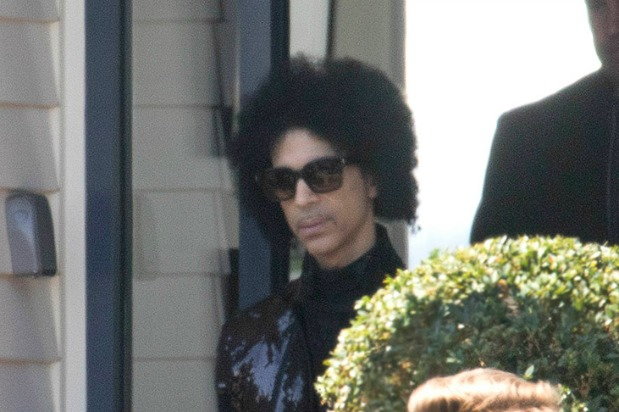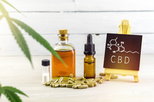As the harsh reality of Prince’s untimely exit fully sinks in and our grieving continues, the world is now clouded with a media frenzy. The latter results from a combination of things: Prince’s private mystique, the questionable way in which he died and the lack of known facts surrounding his death. The absence of information and length of time required to produce autopsy results leaves fans both curious and concerned. As such, the media stands to make a profit from any seemingly substantial theories they can provide.
One proposed theory is particularly concerning and directly impacts the addiction recovery community. The sudden claim that Prince was addicted to narcotic pain pills surfaced shortly after his demise and it didn’t take too much time for the media to produce so-called witnesses to also support this suggestion. Recently, statements have been made declaring Prince had an appointment to see an addiction specialist which was reportedly scheduled just days after his death.
However, what the public fails to remember is that we still don't know the cause of his death and therefore have no proof that he was indeed an addict. Additionally, few of us have actually had the privilege of personally knowing him, and so we can only base our individual conclusions on what we do know: that Prince was private, professional, constantly producing music, still performing and seemingly one of the most humble, spiritual and holistically healthy artistic geniuses our world has ever known.
Rarely is that description ever used to describe an active addict. Moreover, the holistic health and spirituality components were often self-professed by Prince in various interviews throughout his career. He was a vegan, devout Jehovah’s Witness, claimed to abstain from drugs and alcohol and, according to those who toured with him, required all those around him to be abstinent as well. Additionally, in 2000, according to his sister, Tyka Nelson, Prince assisted her in receiving help for her drug addiction.
Again, none of the aforementioned information points toward active addiction as a cause of death for Prince. What the media is portraying begs for a better public understanding of the signs and symptoms that are typically present in drug abuse and addiction.
Below is a list of common characteristics of drug abuse, addiction and prescription opiate intoxication.
Signs and Symptoms of Drug Abuse
- Neglecting professional and personal responsibilities because of drug use
- Using drugs in risky situations or dangerous circumstances and practicing high-risk behavior under the influence of drugs
- Drug use resulting in legal consequences
- Drug use negatively affecting interpersonal relationships and resulting in loss of romantic relationships, employment, family connections and/or friends
Signs and symptoms of Drug Addiction
- Presence of drug tolerance and more drugs that are needed to acquire the same desired effect
- Drug use is necessary to prevent withdrawal symptoms
- Loss of self-control over the use of drugs, typically noted with several promises or attempts to quit
- Obsessive and compulsive thoughts about attempts to score or recovering from the effects of drugs
- Complete loss of interest in hobbies, socializing, or activities once considered priorities
- The continued use of drugs, regardless of negative consequences or destructive effects to self, family, friends or career
Signs and Symptoms of Prescription Opiate Intoxication
- Decreased social interaction
- Sleepiness or drowsiness
- Declining cognitive function (i.e., poor memory, lack of focus, etc.)
- Decreased bowel movements or constipation
- Decreased motor skills (i.e., slowed movements, reactions, etc.)
- Slowed breathing
- Unstable mood
- Nervousness or anxiety
- Depression or complete apathy
The Verdict: Royal Addict or Not?
So, the question for those in the recovery community remains: was Prince really an addict or not?
Unfortunately, without full, personal knowledge of his life, no ethical helping professional can safely, publicly make that call. However, given the public way in which celebrity lives are typically exposed, it does seem appropriate to assume that the general population would have caught onto some signs of a growing, self-destructive issue. Whether a functioning or non-functioning addict, Prince would have shown obvious behavioral symptoms at award ceremonies, during interviews or on stage, especially if his reported addiction had spanned the two decades claimed by a few media outlets. However, none of these aforementioned signs or symptoms was ever witnessed by the public, which make these recent claims in the media even more concerning.
If the media is merely using the deadly disease of addiction to influence the public, regardless of the underlying motive without considering the ramifications of a public diagnosis or potential misdiagnosis based on hearsay, they are not merely disrespecting the late Prince, but they are also recklessly misleading and misinforming the general population about the disease of addiction, its chronic and progressive nature, and the holistic—physical, behavioral and spiritual—signs and symptoms that ultimately accompany it. The inherent danger that this possibility poses to the public, the field of addiction and the recovering community is insurmountable and equal only to the deliberate destruction of The Purple One’s once gleaming reputation and resulting devastation felt by his still-devoted fans.








